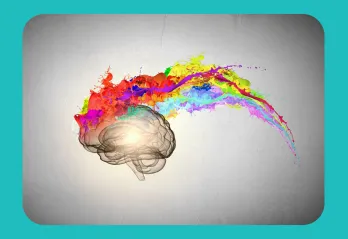June Mental Health Article

At its core, creativity is the ability to make new connections and form original ideas—an incredibly valuable human quality. But beyond innovation and artistic output, engaging in creative activities can have a profound impact on mental well-being. According to a recent survey by the American Psychological Association (APA), nearly half of Americans turn to creative activities like playing music, dancing, crafting, or solving puzzles as a way to manage stress or anxiety.
Interestingly, the survey also found that those who rate their mental health as “very good” or “excellent” are more likely to engage in creative pursuits regularly. This correlation suggests that creativity isn’t just for artists—it's a vital wellness practice accessible to all.
Being creative doesn’t have to mean painting a masterpiece or composing a symphony. It can show up in everyday choices: the way you decorate your home, tend your garden, dress with flair, or even arrange a meal. The key is to find creativity in the things you enjoy doing and make space for them regularly.
Like exercise or a healthy diet, nurturing your creativity can become a powerful routine for overall wellness. Here are a few simple, enjoyable ways to get started:
- Draw or Paint: Creating visual art can be deeply therapeutic. It helps reduce stress and symptoms of depression, and even improves memory and resilience—especially in older adults. For seniors with dementia, making art can provide a vital connection to the world.
- Sing or Play Music: Whether you’re harmonizing with a choir or belting out a tune alone in the car, music has a powerful emotional and social effect. Singing increases oxytocin, a hormone linked to bonding and trust, while listening to music can also elevate mood and foster connection.
- Dance or Move Your Body: Movement is medicine. Dancing isn’t just fun—it can relieve anxiety, elevate mood, and even lower dementia risk. It's especially beneficial for individuals recovering from illness or coping with chronic stress.
- Write or Tell Stories: Whether journaling, blogging, or writing fiction, storytelling allows you to explore your imagination, express complex emotions, and build self-awareness. Writing is a gateway to self-confidence and fulfillment.
Spend Time in Nature: Immersing yourself in nature is a creativity booster and mood lifter. Stepping away from screens and soaking up the natural world can enhance problem-solving skills and elevate creative thinking by as much as 50%.
You don’t need to be an artist to be creative. You only need a willingness to try, to explore, and to express. When we give ourselves permission to create—whether through words, movement, music, or color—we give our mental health a powerful boost.
RESOURCES:
Check out Y360: Arts for Adults Video: https://ymca360.org/categories/22644/videos/43130
Resilience Worksheet: Do Something You Enjoy